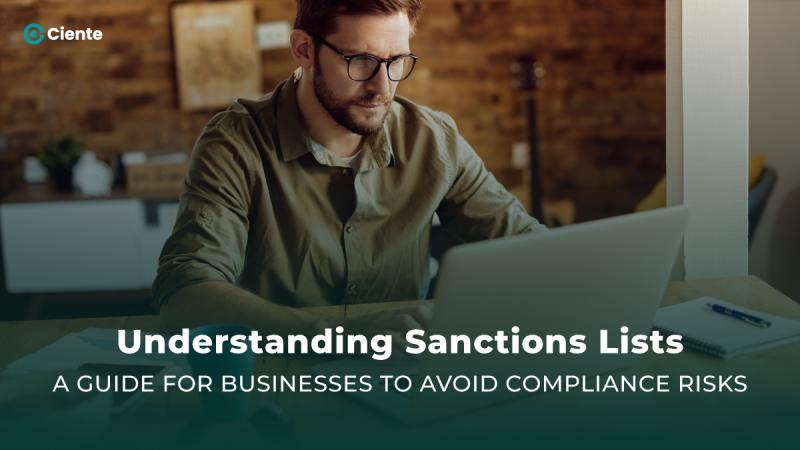Understanding Sanctions Lists: A Guide for Businesses to Avoid Compliance Risks

Understanding sanctions lists is crucial for businesses
aiming to navigate the complex landscape of compliance and risk management.
With increasing global regulations and the potential for severe penalties,
organizations must be proactive in ensuring they do not engage with sanctioned
entities. This guide will explore the significance of sanctions lists, how
businesses can effectively manage compliance risks, and the role of technology
in facilitating these processes.
What Are Sanctions Lists?
Sanctions lists are official compilations maintained by
governments and international bodies that identify individuals, organizations,
and countries subject to restrictions due to various reasons, including
national security threats, terrorism, or human rights violations. The most
notable sanctions lists include those from the Office of Foreign Assets Control
(OFAC) in the United States, the United Nations (UN), and the European Union
(EU)
Types of Sanctions
Sanctions can vary significantly in their nature and
application. The four primary types include:
- Economic
Sanctions: Restrictions on trade and financial transactions.
- Travel
Bans: Prohibitions on individuals entering certain countries.
- Asset
Freezes: Blocking access to financial assets held within a
jurisdiction.
- Comprehensive
Embargoes: Broad prohibitions against trade with specific countries.
Understanding these types is essential for businesses to
ensure they comply with relevant regulations
Why Compliance Matters
Non-compliance with sanctions can lead to severe
consequences, including hefty fines, legal repercussions, and reputational
damage. For instance, in 2022 alone, OFAC imposed record penalties totaling
$1.5 billion for sanctions violations
Therefore, businesses must implement robust compliance
frameworks to mitigate these risks.
Key Compliance Steps
- Regular
Screening: Businesses should conduct regular screenings against
sanctions lists to identify any potential matches with customers,
suppliers, or partners.
- Enhanced
Due Diligence: When a potential match is found, conducting thorough
investigations is critical to determine if a business relationship should
proceed.
- Training
and Awareness: Employees should be trained on the importance of
sanctions compliance and how to recognize potential risks.
Leveraging Technology for Compliance
In today's digital age, technology plays a pivotal role in
ensuring compliance with sanctions lists. Tools such as automated screening
systems can significantly enhance the efficiency and accuracy of compliance
processes.
Benefits of Automation
- Efficiency:
Automated systems can process large volumes of data quickly, reducing the
time spent on manual checks.
- Accuracy:
Advanced algorithms can minimize false positives by matching data more
precisely against sanctions lists
- Integration
with Martech: Integrating sanctions screening tools with marketing technology (Martech) platforms allows businesses to maintain compliance
seamlessly throughout customer interactions.
Best Practices for Sanctions Screening
To navigate the complexities of sanctions compliance
effectively, businesses should adopt the following best practices:
- Utilize
Comprehensive Databases: Employ tools that provide access to multiple
sanctions lists and watchlists from various jurisdictions
- Regular
Updates: Ensure that your screening tools are updated frequently to
reflect changes in sanctions lists as they evolve
- Data
Quality Management: Maintain high-quality data formats that align with
those used in sanctions screening lists to reduce false positives
Conclusion
Understanding and managing sanctions compliance is a
critical aspect of operating in today's global business environment. By
leveraging technology and adhering to best practices, organizations can
mitigate compliance risks effectively. The integration of advanced screening
solutions with existing Martech systems not only enhances operational
efficiencies but also safeguards against potential legal repercussions
associated with non-compliance.As businesses continue to expand their global
reach, staying informed about changes in sanctions regulations and employing
robust compliance strategies will be paramount in maintaining legal and
operational integrity.https://ciente.io/blogs/sanctions-screening-tools-the-key-takeaways/
Post Your Ad Here
Comments